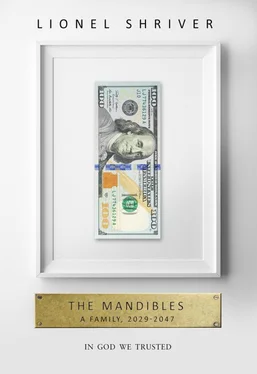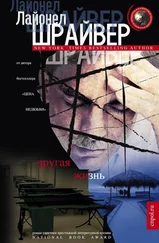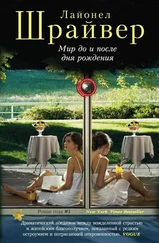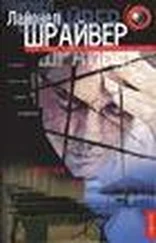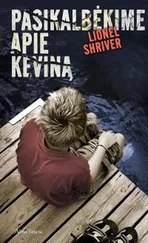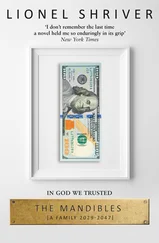Nollie chuckled. “Same reason they weren’t interested in fighting another Civil War in the first place.”
“Rumors are free. They spread themselves. Hiring people to post a lot of nonsense about the USN costs next to nothing. It’s what Fifa said about state terrorism. Policing by propaganda is a money saver . And honestly, Noll,” Willing added as an afterthought. “It’s the United States. It’s not what it once was. But they still don’t assassinate you for tax evasion.”
They got their first lesson in Nevadan brass tacks that very night. They were running low on natural gas, and wouldn’t make it to Vegas without refueling. While the small town of Ely did have a motel and a diner, they hadn’t the money for either. So they pulled off 93, locked the doors, and wrapped up in the sweaters that only Nollie had thought to pack in July. After sundown in the desert, it got cold.
Willing didn’t care. He’d been colder. During the winter of 2031–32, when his mother wouldn’t set the thermostat above forty-three—barely high enough to keep the pipes from freezing. Hunkered down in a trickling culvert on the way up to Gloversville, unable to sleep, waiting for the sun to rise. Freezing his fingers on the handlebars as he pushed the bike up weedy riverbanks, struggling to keep the cycle upright, Nollie’s and Carter’s boxes making the load top-heavy. The tacos from Final Feast may have run out long ago, but this was hardly his first skipped meal. Avery had taken a year or two to disentangle luxuries from requirements. Willing knew the difference as a kid.
He hit the pavement early, and offered to fry up short orders at the diner. Begrudgingly, the proprietor agreed, but only through the breakfast rush. He heard mutterings about “illegal immigrants”—a slightly bent usage, since what made Willing and Nollie illegal wasn’t being denied permission to enter this new country, but being forbidden to leave their own. After also cleaning the bathrooms, he earned his first continentals—their arcane colonial design in sepia even hokier and more retro than the old greenbacks.
Were the prices on the menu any guide, his wages were splug—lower than his post-tax pay at Elysian. Yet it felt better to make less money and keep all of it than to net more money after the income had been plundered. The fact that the diner’s owner didn’t request the web address of the metal in his neck was heady. These were his first earnings in six years that hadn’t been automatically reported to, and neatly evaporated by, the federal government. Dear Goog, Wish you were here.
Next, he collected dried cowpats to be sold as manure for a ranch near the highway. He spent the afternoon mending the rancher’s fences—the very quotidian chore that killed his mother. Willing took care to wear gloves, even in the heat. The work gave him flashbacks: Florence’s forefinger, at first merely sausage-plump, with a halo of red around the cut. She tried to be mindful, soaking the laceration in warm salt water, which afterward the doctor said was futile. Within two days, the hand ballooned into an unmilked udder, and red streaks striped her sturdy forearm. Supposedly, the result would have been the same had they whisked her to the hospital the moment the finger began to swell. “Drugs that don’t work,” the internist announced forlornly, delivering the respectfully folded bandana like a miniature American flag at a military funeral, “don’t work early any better than they work late.”
Meantime, Nollie did jumping jacks beside the car, earning no end of rubbernecking hilarity from passing locals. Willing would never have called it to her attention, but her form had decayed. Her hands no longer met overhead, but rose only as high as her ears, then descended to the level of her waist. The result was a weak, dying-butterfly motion. The jumps, too, were ineffectual. She used to click her heels. Now her feet lifted off and dropped in the same place, about shoulder width. When briefly airborne, she hovered only half an inch from the ground—you could hardly even call it a jump. The deterioration pained him. The lunatic regime always had a comical side, but this feebler version would only amuse strangers.
Even Enola Mandible couldn’t do calisthenics all day, however lamely articulated. By their second day, she was scavenging for odd jobs herself: shelving canned goods in the minimart, swabbing floors. After which, back aching, she didn’t need to do jumping jacks.
It was a poor area, made poorer because tourists from the likes of Boise and Portland were no longer passing through on the way to Vegas. Worse, like Willing, soon after secession the state’s entire population—albeit with an unchipped sector vastly larger than the national average—had their chips zeroed by Scab satellites. Nevadans dubbed this punitive farewell fleecing “the Petty Larceny.” The cumulative extraction was not insubstantial. The term alluded less to meager takings than to small-mindedness.
As the pittances locals could pay their migrant visitors added up, the community’s hostility broke down. Willing worked hard and well. He kept his mouth shut. By the end, more than one Ely native had invited them both for a meal. After five days of living out of the Myourea, they rustled up enough spare continentals to refuel the car.
Nevada had always been a magnet for kooks. Misfits, outcasts, miscreants, mavericks—the malcontents, the fantasists, the seekers of shortcuts. Born of mining boom and bust, the economy was founded on vice: prizefighting, loose women, drunkenness, gambling, and marital fecklessness. Even before going it alone, the state was an outlier, making it all too easy to get married, easier still to divorce. Alcohol was plied twenty-four hours a day. A lenient relationship to prostitution well predated the era in which Savannah was able to earn an accredited community college degree in stimulation therapy. Real cigarettes—or giant smelly cigars, for that matter—were legal in casinos. A prohibition against state income tax was enshrined in its constitution. In 2042, Nevadans had merely formalized that they were a people apart. Thus the mutinous new nation-within-a-nation was tailor-made for Willing’s eccentric, ceaselessly outraged uncle. But with what or whom would an iconoclast shadowbox here? The image was discordant: Jarred Mandible, perfectly happy.
Willing had known his mentor as a far-sighted landowner, who had appreciated before the rest of the family the primacy of the need to eat. He always pictured Jarred in muddy gumboots, with a shovel. Surely in the USN Jarred would already have procured a farm—Citadel resurrected, liberated from the humiliating requirement to sell nearly all its meat and produce, at scandalously low fixed prices, to the US Department of Agriculture. Yet the urban address on http://usn should have challenged this rosy, pastoral vision of his uncle’s circumstances.
Willing couldn’t suppress a bubble of excitement as Nollie crossed the Las Vegas city limits. He had never been interested in gambling—with money, that is. More broadly, he was very interested in gambling. He was gambling now.
Besides, he instinctively responded to the city’s reputation. Its wildness, abandon, and incaution naturally called out to a young man whose childhood was constricted by wariness and vigilance. The institutionalized recklessness of a town where many an individual blew the entirety of his assets in a single whirl of the roulette wheel couldn’t help but appeal to a chronically parsimonious Brooklynite who had measured out exact three-quarter cups of rice for his mother, that the bag might last the week. He savored the city’s obliviousness to the tut-tutting opprobrium it had always attracted from the tight, the prim, the rectitudinous. It cared nothing for virtue. It was crass, it was loud, it was heathen. It was silly, and it was fake—honestly, admittedly fake, which gave it a genuineness of a sort. It did not apologize for itself. Over time, the city had made scads of money for its residents on the very back of what was wrong with it.
Читать дальше
